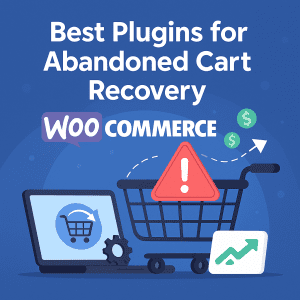 The digital world, going into 2025, looks highly competitive for small businesses across Canada. Online presence cannot be an option; it has to be a compulsion. Effective web hosting will have to be the backbone of any successful online venture as this critical component impacts everything from the speed and performance of your website to security and user satisfaction. It is a web hosting solution that makes a difference between popping up or getting lost in a heavy sea of competitors in a saturated market.
The digital world, going into 2025, looks highly competitive for small businesses across Canada. Online presence cannot be an option; it has to be a compulsion. Effective web hosting will have to be the backbone of any successful online venture as this critical component impacts everything from the speed and performance of your website to security and user satisfaction. It is a web hosting solution that makes a difference between popping up or getting lost in a heavy sea of competitors in a saturated market.
For a small business based in Canada, a web hosting company that is located within the country can present a few key benefits to include speedier load times for domestic customers and simpler adherence to Canadian data policies. It's a method that will not only enhance the experience of your target audience but also build credibility with your brand. However, when you grow your business, so do your needs when it comes to web hosting. As your company grows, balancing expansion with managing costs becomes very important in maintaining competitive pricing without paying more than necessary.
Let us get moving through these practical tips to get you all geared with small business Canada web hosting options and the ensuing managing. You will know more than just who to begin with but manage also in optimizing on speed, reliability, or even efficiency. We understand that the proper fit, whether it be for expansion or for its birth, does not necessarily cost an arm and a leg. Time to take the plunge and make 2025 your year for online growth with affordable hosting in Canada!
Understanding the Basics of Web Hosting
Web hosting is a service by which people and organizations are able to place a website or web page onto the Internet. A web host, or web hosting service provider, is a business that offers the technologies and services needed for the website or webpage to be accessed over the Internet. Websites are hosted, or stored, on special computers called servers. All an Internet user needs to do is type your website address or domain into his or her browser, and your computer will connect to your server to deliver your web pages to them through the browser.
Web hosting basically involves enabling or leasing some space for a website to be hosted on the World Wide Web. In short, everything that what the web site is offering must be hosted on the server and not on computers as the said clients for the web are going to access those online. What really defines a web host is its reliability, security, performance, support, which we will discuss in later sections of this course.
Types of Web Hosting
Though there are many types of web hosting services, they fall into a few categories suited to different purposes:
- Shared hosting: This is the cheapest and most basic type of hosting. Under shared hosting, multiple websites share resources on the same server. It is, therefore appropriate for small business or private websites with less traffic volume. However, performance suffers if another site on that server has significant traffic loads.
- Virtual Private Server (VPS) Hosting: VPS hosting offers more resources and control compared to shared hosting. However, multiple websites share the same server. Each website will function in its own virtual environment. VPS hosting is ideal for growing businesses that need flexibilities and performance.
- Dedicated Hosting: Dedicated hosting uses the entire server to host your website. This is the most performance-driven arrangement, and you would have an almost complete control over this but at a higher expense. It's ideal for large businesses or websites whose traffic volumes are high in volume.
- Cloud Hosting: Cloud hosting is basically the hosting of your website on many servers, so you could have scalability and reliability in the process. That would be a good choice if your business experiences fluctuating traffic and needs to have the ability to scale your resources up or down.
- Managed WordPress Hosting: This hosting category is specifically designed for WordPress websites. Here, automatic updates are provided, along with data backup and better security measurements. This is best suited for small businesses that require ease in hosting.
Key Factors to Consider When Choosing a Hosting Provider
- Security : Business communications often contain sensitive information that only the addressee should access. Emails lack proper security, so when it happens, then the breach of data takes place, unauthorized access and financial loss. However, you want to know your hosting service for email, to be secure first, before you choose a provider. Do not use free email hosting services since they lack security requirements as provided by the big email hosting service providers at a good price. Use email hosting that supports HIPAA and FISMA compliance for maximum security.
- Administration and Operation : Email forms the spine of business communications because critical information can reach multiple users across the globe in one click. Ideal email hosting services provide businesses with total control of their email environment using round-the-clock chat, email, and voice support. For example, exceptional email hosting providers offer comprehensive support from installation, troubleshooting to maintenance. In addition, reliable email hosting providers offer an interactive, user-friendly web interface to enable users to raise problem tickets in a matter of seconds, and then the problem can be solved by the dedicated technical support team.
- Elastic and Compatible : Business owners can't afford to allow productivity among employees to be low, and therefore, an email solution needs to support enterprise-level syncing across multi-devices to facilitate operations on the go. Regardless of whether your employees' strength is in thousands or millions, each one must be able to access calendars, contacts, and shared folders with just a few clicks, with no concern about their geographical location. Your email hosting provider must also be able to offer bundled benefits which will help you scale with growing business needs without having to change multiple email solutions.
- Optimum Storage and Archiving Functions : Many business users encounter that "mailbox full" message every time they log in or during the work hours. Mailboxes full of clutter are a killer to business productivity because a business user must delete messages to create room for new messages in the inbox. The agony remains unsaid when a business user accidentally deletes a very crucial email. Reliable email hosting providers offer decent email storage along with archiving capabilities to ensure you no longer have to deal with a cluttered mailbox and email recovery. Having these capabilities helps business do away with storing bulky.pst files and focus only on the areas that matter.
- Availability of Service : Many organizations running according to the "follow the sun" model place demand on email systems always up and running 24 hours of the day with minimal latencies and other mission critical issues. An hour or more of email unavailability can cost a group thousand dollars or more factoring in the size and complexity of organizational activities involved in business. Therefore, one must look for email hosting services that have a SLA of 99.9 percent uptime and thus, are financially backed up. Be it day or night, a reliable service provider ensures email services that work well and glitches occur to be dealt with promptly.
- Pricing Models and Budget Considerations : In finding the best email hosting that suits your business, most significant factors deserve your greatest care are probably pricing models and budgets. In other words, if you plan to know who is your best email service provider, much about the means through which your organization communicates goes a long way in terms of affecting overall health that the wallet sustains; therefore, go deeper on the inner details of plans that pricing emails services provider offer. Assess your special needs through the analysis of storage, user capabilities, among other requirements because over-or under-optimal service quality and expenses is not a healthy idea, and it depends on the right match based on the right services according to your budget, working with the best Email Host Service Provider, leading to efficient productivity and easy correspondence that leads to a profit eventually in the long-term run of your business.
- Scalability for Growing Businesses : Scouting on an email hosting service means one should also take scalability, especially if the one getting it is an enterprise business expected to grow into future prospects. With this reason, as your business evolves, so does the growing need for communications by means of emails. As a result, you then come to realize the need for an email hosting service to easily fit into the scaling needs. The best email hosting service should provide flexible options to easily add new users, increase storage capacity, and adapt to changing demands without disrupting operations. Scalability ensures that your email infrastructure can keep pace with your business's growth trajectory, preventing potential bottlenecks and ensuring uninterrupted communication. When evaluating email hosting providers, prioritize those that offer scalability, as it can be a decisive factor in supporting your business's expansion plans.
The Importance of Local Hosting for Canadian Businesses
Small businesses have several advantages of using the Canadian web hosting solution.
- Faster Load Times : This simply means that the people sitting in Canada will enjoy lightning-fast loads, an indispensable requirement for providing a top-notch user experience and potentially a much better ranking with SEO searches.
- Adherence to Laws in Canada: Since Canadian web hosting services know the local regulations, therefore your website obeys all the laws and regulations according to the provisions of Personal Information Protection and Electronic Documents Act (PIPEDA) and also in case if you are gathering personal details about your customers, you must have fulfilled the requirements in that regard.
- Help Local Economy: Choosing a Canadian hosting company will help local businesses, building up the Canadian economy.
Essential Tips to Scale Your Website in 2025
Scaling your website effectively requires strategic planning and execution. Here are some essential tips to help you navigate this process:
- Optimize your web site for performance. Website performance relates to user experience and, of course, SEO. These can include some of the following:
- Compress images: Large image files can slow down your website. You should compress images by using tools that actually reduce file sizes without compromising quality-this will definitely speed up how fast pages load.
- Fewer HTTP Requests: For each element on your webpage (images, scripts, stylesheets), an HTTP request is needed. Reduce the number of elements on your page to reduce HTTP requests, which in turn may increase the loading time.
- Use caching: Keep static copies of your pages in place at the server, thereby making sure to reduce the server load along with reducing the page loading time for revisiting guests.
It uses CDNs whereby it disperses the content across multiple servers spread over different regions in the world. The content is accessed from that region where the request was made. It is quite convenient, especially for business enterprises with high viewership all over the world.
Implement SEO Best Practices
SEO is crucial when it comes to driving organic traffic to your website. Some of the major practices include the following:
- Keyword Research: Identify which keywords, such as "small businesses in Canada web hosting," may work well within the content. Using Google Keyword Planner can help find keywords that have a high number of searches with minimal competition.
- Quality Content: High-quality, informative content that answers the needs of your audience. You update your blog with relevant topics, keeping your audience engaged and improving your search engine rankings.
- Mobile Optimization: Ensure that your website is mobile friendly, as the majority of users access your website through mobile devices. Apply responsive design to ensure smooth display across all types of devices.
- On-page SEO: Optimize the on-page elements of your website, which include title tags, meta descriptions, and header tags. Use descriptive URLs, and add relevant keywords that will help improve your visibility in search engines.
Leverage Analytics Tools
Understanding your website can serve as a basis for scaling effectively. Use analytics tools, such as Google Analytics, to track user behavior, which sources drive traffic, and conversion rate. This will enable you to make better decisions based on your marketing strategies and website improvements.
- Establish goals: clearly define what the purpose of your website is, for instance, creating a sign-up list for the newsletter or sales of products, using Google Analytics to establish a conversion rate and therefore identify areas of improvement.
- Monitor Users' Activities: Monitor which pages they visit, to understand better how visitors make use of your content; hence you can optimize web pages layout and content for interaction.
Explore E-commerce Solutions
If you decide to expand your business over the internet, integrating e-commerce solutions can boost your sales. You need to look into Shopify, WooCommerce, or Magento to enable a simple online shopping experience for customers.
- Platform selection: Choose an appropriate e-commerce platform for your business. Choose a suitable option from many e-commerce sites available online. Ensure you consider such factors as easy use, payment processing capabilities, and scalability.
- Optimize product pages: Detailed product pages, good-quality images, interesting descriptions, and reviews from customers improve the conversion rates and the shopping experience.
- Use secure payment modes. Ensure your e-commerce site allows credit card processing and offers digital wallets as well. This way, the security of payment builds trust within the customer's mind toward completing the purchase.
Invest in Marketing Strategies
To scale your website, you have to increase the number of visitors. Some of the marketing strategies that you can consider are:
- Social Media Marketing: Use social media platforms such as Facebook, Instagram, and LinkedIn to spread the word about your brand and to communicate with your audience. Create interesting and relevant content that makes viewers want to share.
- Email Marketing: Gather an e-mail list and send out regular newsletters informing the subscribers about the product or service you are offering. Personalized content is used to increase engagement and can send the traffic back to your website.
- Pay-per-click advertising involves investing in PPC campaigns and getting quick traffic to a website. This includes campaigns on Google Ads and Facebook Ads that reach the prospects actively searching for the business's products or services.
Foster Customer Relationships
Building a good relationship with your customers is one of the key success factors for long-term business success. Here are some strategies:
- Personalization: Use the data from the customer and personalize the experience that a customer receives on your website. Provide users with recommendations based on their past purchases or browsing history for more user engagement.
- Customer Comments Encourage feedback and review regarding your services to build more confidence with your potential clients; respond to reviews, including criticisms, as a testament of your value for customer inputs.
- Loyalty programs: Launch loyalty programs, rewarding returning customers for revisiting the site, so that they get something in return for being regular buyers. Such programs reward regular visitors by offering privileged access to products before sales are offered, special promotions on particular dates, etc., as incentives. End.
Managing Hosting Costs Effectively
As your business grows, how you manage your hosting will be important to keep a lid on your costs. Here are some strategies you can use:
- Select the appropriate hosting plan: Make proper choices to select a host plan appropriately so as not to overshoot on its cost; you could probably start small, say starting with the shared hosting while your business is picking off in terms of traffic and go up a step further. You also don't get everything you're going to possibly need by the initial packages.
- Assess Your Needs: Assess the traffic and resource needs on your website to determine which hosting plan is best suited for business. This saves you unnecessary expense.
Monitor Resource Usage
Monitor your website resource usage regularly to find potential optimization areas. If you often use less than the available resources, consider downgrading your plan to save on costs.
Make Use of Monitoring Tools: To monitor the performance and use of resources in your website, apply the monitoring tools. This could aid you when making decisions regarding your hosting plan.
Take Advantage of Discounts and Promotions
Many hosting providers offer discounts for new customers or promotional periods. So, keep an eye out for such chances to reduce your hosting cost.
Subscribe to newsletters of hosting providers to know the promotions and discounts that you can use to save some costs.
Review Your Hosting Provider Regularly
Hosting needs will change as your business grows or changes. Regularly review your hosting provider and plan to ensure you are getting your money's worth. If that is not possible with your current provider, you may want to consider switching to a provider who offers better pricing or features.
Annual Review: Review your hosting provider annually to assess how well they're performing and also how the prices are with the features offered. You'll be keeping proactive on your hosting costs.
Implement Cost-Effective Solutions
Find cheaper ways to make your website more valuable without spending a fortune. For example, use open-source content management systems, like WordPress, as there are millions of free plugins and themes available.
Free Stuff: You can enjoy free stuff, website templates, and plugins to make your website more functional.
Conclusion
Web hosting for small businesses in Canada will be essential at the approach of 2025. Knowing Canadian web hosting solutions and how to scale up your website at a manageable cost can enable your business to gain competitive advantage over the long-term.
Whether you are at the starting point or looking to amplify your already established online presence, the advice and insight through this blog will help steer a course through the minefields surrounding web hosting and set in motion a website primed for growth.
Get Started with Affordable Canadian Hosting Today, and watch your business boom within the bubbling digital hub.














